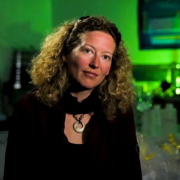
Copyright : Laboratoire LEMAR- 2018
Anne-Claire Baudoux (CR CNRS, station biologique de Roscoff, AD2M), Brivaëla Moriceau (WP5, Impact of viral infection on diatom fate)
National
ANR AAPG2022
Start Date
04/04/2025
End Date
04/04/2025
AD2M : Anne-Claire Baudoux, Nathalie Simon, Christophe Six, Florence Le Gall, Marie Walde, Estelle Bigeard
MIO : Guillaume Blanc, Christelle Desnues, Sonia Monteil
SBR : Erwan Corre, Charlotte Berthelier, Ian Probert, Cedric Leroux
LPCV : Johan Decelle
MNHN : Martine Boccara
 © Jennifer LAURENT | UBO
© Jennifer LAURENT | UBO GLASS
Scroll to top
GLASS
Scroll to top